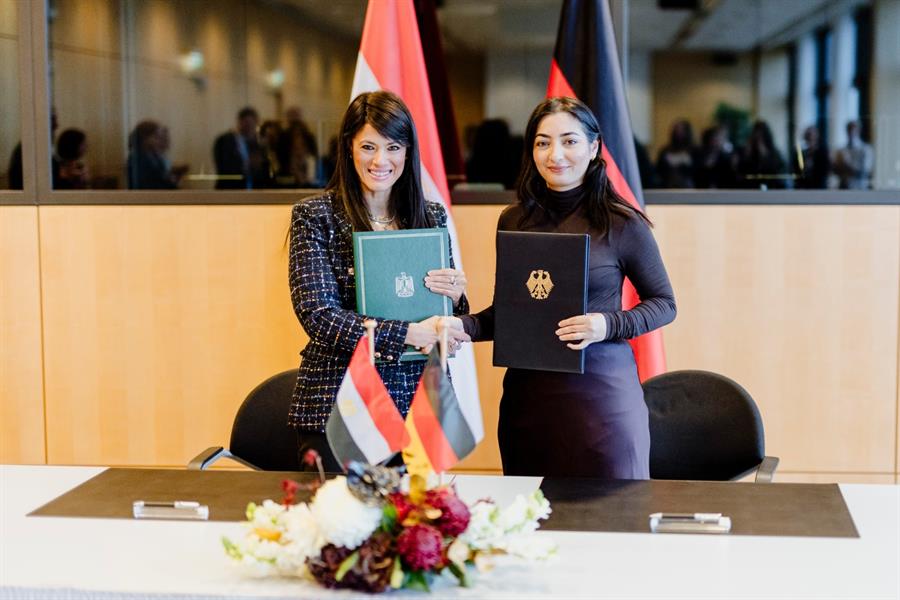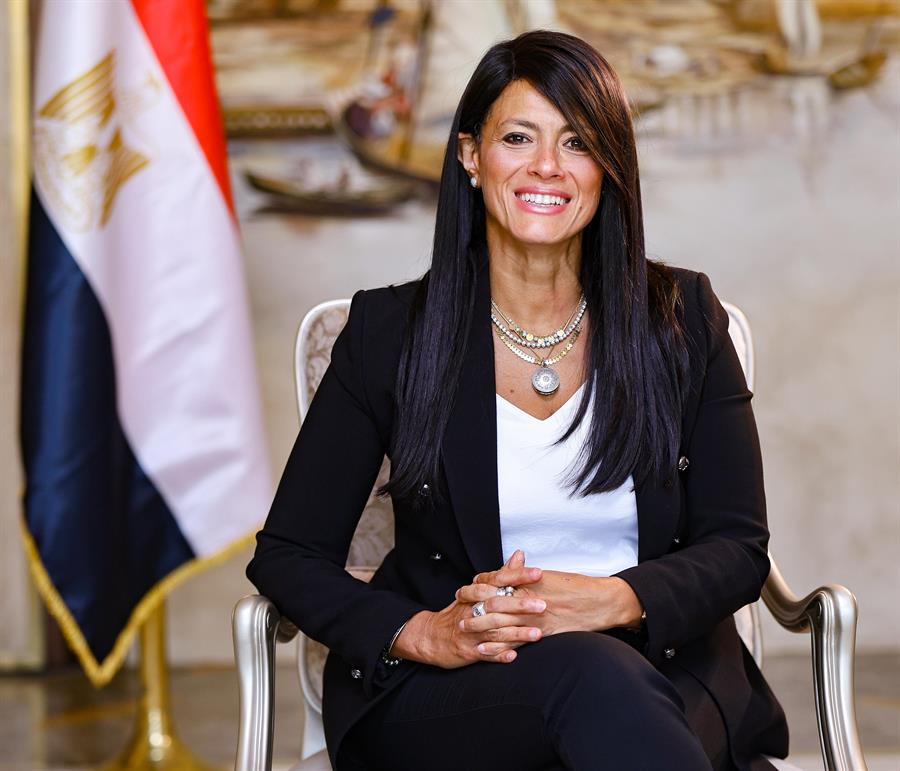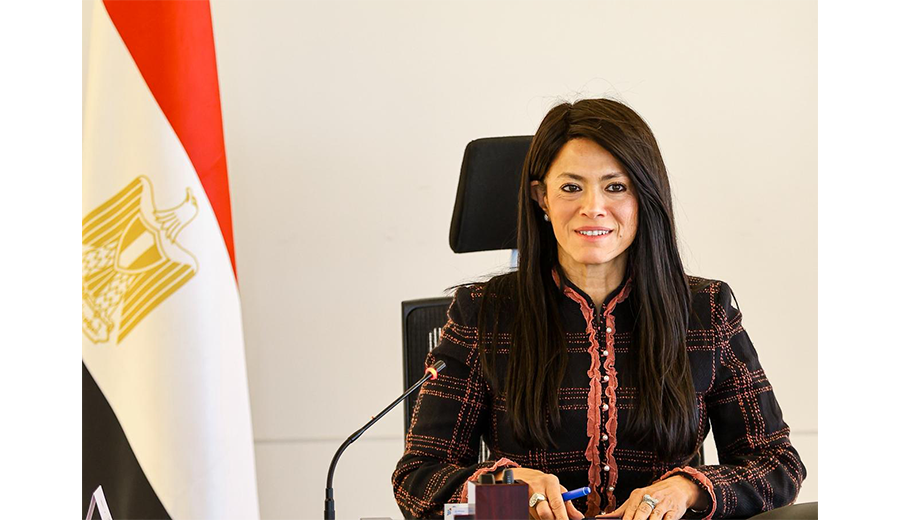H.E. Dr. Rania Al-Mashat Participates in High-Level Engagements During the Fourth International Conference on Financing for Development in Seville, Spain
02 July 2025
Minister Highlights “Seville Platform for Action” and
Advocates for Scaling Development Finance Amid Global Challenges
H.E. Dr. Rania A. Al-Mashat, Minister of Planning, Economic
Development and International Cooperation, continued her active participation
in the Fourth International Conference on Financing for Development, held in
Seville, Spain, from 29 June to 3 July 2025. Minister Al-Mashat joined the
Egyptian delegation led by H.E. Dr. Mostafa Madbouly, Prime Minister of Egypt,
who attended the conference on behalf of H.E. President Abdel Fattah El-Sisi.
Seville Platform for Action
During the conference, H.E. Dr. Rania Al-Mashat took part in
a dedicated press briefing on the newly launched “Seville Platform for Action”,
emphasizing its significance as a global mechanism to catalyze large-scale
development initiatives and enhance international cooperation. The platform
aims to accelerate the financing and implementation of the Sustainable
Development Goals (SDGs) by providing an inclusive and coordinated framework.
In her remarks, the Minister underscored the importance of
amplifying the voice of developing countries in global financial dialogues. She
noted that tackling today’s interlinked development and climate challenges
requires collective action and inclusive partnerships. “Progress on our
national priorities cannot be achieved in isolation. We need true partners who
share our vision, support our efforts, and contribute meaningfully to our
journey,” H.E. Dr. Al-Mashat said.
She outlined Egypt’s strong and multifaceted partnerships
with bilateral and multilateral development institutions, as well as with
United Nations agencies, highlighting their pivotal roles in supporting both
climate and development initiatives—not only through concessional finance, but
also via technical assistance and innovative financial tools.
H.E. Dr. Al-Mashat also emphasized the centrality of two
mechanisms in today’s development landscape: country platforms and the
Integrated National Financing Framework (INFF). She shared Egypt’s experience
in launching its own country platform, the NWFE (Nexus of Water, Food, and
Energy) program, alongside the recently adopted National Integrated Strategy
for Development Financing, as part of efforts to ensure streamlined and
accessible financing for national strategies.
Importantly, the Minister stressed that the call for
partnerships must go beyond financial contributions. “Partnership means
alignment, coordination, and co-implementation. Every stakeholder contributes
not only funding or expertise but also participates in implementation and
harmonization with others,” she explained. She further emphasized that national
ownership does not merely imply sovereign decision-making—it also entails a
responsibility to coordinate among the various international partners, each
with its own governance and operational frameworks, in a way that supports
growth, job creation, and sustainable development.
Investing in Climate and Development: Role of Global
Financial and Fiscal Structures
H.E. Dr. Rania Al-Mashat also participated in a high-level
panel discussion titled “Investing in Climate and Development: The Role of
Global Financial and Fiscal Structures,” which addressed challenges related to
mobilizing domestic and international resources and integrating macroeconomic
considerations into climate and development strategies.
The Minister highlighted the importance of adopting more
flexible approaches to Debt Sustainability Analyses (DSA), positioning them as
critical tools for enabling sustainable development and unlocking private
sector investment. She called for updated frameworks that reflect the evolving
needs of countries tackling both climate risks and development deficits.
She referenced the Bridgetown Initiative, launched in 2022,
as a key driver of international advocacy for reforming the global financial
architecture and scaling capital flows toward sustainable development. The
initiative has played an instrumental role in calling on institutions like the
IMF and World Bank to revise the debt sustainability framework initially
designed for low-income countries, ensuring it is better aligned with current
development realities.
H.E. Dr. Al-Mashat further noted that attracting private
investment requires financial stability and flexible, forward-looking debt
strategies. She emphasized Egypt’s commitment to broad structural reforms aimed
at boosting investor confidence, as reflected in recent international
assessments of the country’s economic performance.
She also reiterated the importance of enhanced coordination
with international financial institutions (IFIs), citing Egypt’s robust
partnerships with IFIs as a key factor in enabling private sector engagement,
mobilizing investment, and creating opportunities for inclusive growth.
Impact Finance Through the UN SDG Fund
In a separate session organized by the United Nations, H.E.
Dr. Rania Al-Mashat contributed to a discussion on mobilizing impact finance
through the UN Joint SDG Fund. The session featured participation from H.E.
Amina J. Mohammed, UN Deputy Secretary-General; H.E. Prof. Mthuli Ncube,
Zimbabwe’s Minister of Finance, Economic Development and Investment Promotion;
and other international development partners.
Development Finance and Capacity Building
The Minister also joined a roundtable co-hosted by the
Permanent Missions of Greece and Italy to the UN, the OECD, ECLAC, and the
African Union Development Agency (AUDA-NEPAD), on “Building Capacities for
Financing Development.” The session explored best practices in development
finance, capacity building, and the delivery of technical assistance to
developing countries.
In her remarks, H.E. Dr. Al-Mashat highlighted the
indispensable role of technical assistance in development cooperation,
particularly in strengthening institutional capacity, facilitating knowledge
exchange, and transferring technology. She also presented the Ministry’s newly
released report on development finance mobilized to empower the private sector,
which documents over $15.6 billion in concessional financing directed to the
private sector in Egypt since 2020.
In line with this, she affirmed Egypt’s readiness to actively participate in a global platform for knowledge exchange and technical support, in response to recommendations made by the UN Secretary-General to enhance capacity development for sustainable development.









